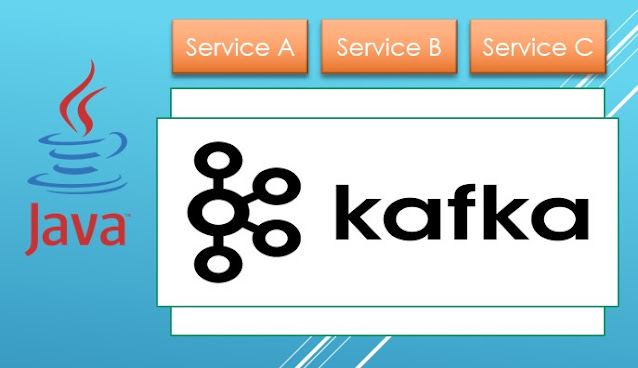How To Install Apache, PHP and MySQL Manually On Windows
 |
| Apache PHP MySQL, Web Server |
If you are a web developer, using Apache, PHP and MySQL is the most easiest way you can do. You can start your website stuff in just few minutes. If you are using windows, there's program called XAMPP, it gives you a bundle of Apache, PHP and MySQL altogether, by just following Next and Next button, you can start your web development journey right away.
If you want have lot of control over your Server stack, you can do install manually. So here's how you can server stack for your web development manually.
1. Download the VC run time 15,17 and 19
From this link: https://aka.ms/vs/16/release/vc_redist.x64.exe
Visual C++ 2015, 2017 and 2019 is compatible with each other. Unlike the previous version, if want the Apache and PHP built using lower than VC 15, you should have install the corespondent VC run time on your computer, exactly the same for each Apache and PHP.
2. Download Apache VC 15
Link here: https://home.apache.org/~steffenal/VC15/binaries/httpd-2.4.41-win64-VC15.zip
Note: if some link broken you can visit te apache lounge project, the resources can be found from https://www.apachelounge.com/snapshots
3. Download PHP VC 15
The PHP interpreter for Windows, download link here : https://windows.php.net/downloads/releases/php-7.3.9-nts-Win32-VC15-x64.zip
Note: if some link broken you can visit te apache lounge project, the resources can be found from https://windows.php.net/download
4. Unzip all the Apache and PHP
I usually make a new folder called "Apache-PHP-Vc15" and unzip both Apache and PHP inside that new folder, both inside the same folder.
5. Test if the Apache can be run on your machine
To create Apache HTTPD services, open cmd in administrator mode, locate to D:\Apache-PHP-Vc15\httpd-2.4.41-win64-VC15\Apache24/bin and then:
httpd -k install
You can open ApacheMonitor.exe, on that you can start, stop or restart the Apache. If it is running, you can check on your browser by visiting http://localhost
6. Test if PHP is doing good
Open windows cmd, locate to you PHP Extraction directory, for example mine is:
cd D:\Apache-PHP-Vc15\php-7.3.9-nts-Win32-VC15-x64\bin
Just using this command to see if your PHP is working with no error:
php -r "echo \"It is working!\";"
7. Make Apache loads PHP
Using any kind of text editor, open Apache configuration which is httpd.conf inside YOUR_APACHE_LOCATION/conf/ and then add the following line on the very bottom of that file:
LoadModule php5_module "D:/program/apache-php-vc11/php-5.6.40-Win32-VC11-x64/php5apache2_4.dll"
AddHandler application/x-httpd-php .php
PHPIniDir "D:/program/apache-php-vc11/php-5.6.40-Win32-VC11-x64/"
<FilesMatch \.php$>
SetHandler application/x-httpd-php
</FilesMatch>
11. Install MySQL
It is easy to link between PHP and MySQL, you can just open php.ini using editor, if there's no php.ini, you can just rename php.ini-development. And then locate to :
;extension=php_mysqli.dll
Just remove the semicolon in front of it, save and then restart the Apache httpd server.
NOTE: It is important that you need to have Visual C++ (VC) run time exactly the same for your PHP binary build, and Apache binary build, the newest VC ++ is version 15,17,19.
By installing Apache and PHP version separately, you can switch between version of Apache and PHP much more easier.
I usually make a new folder called "Apache-PHP-Vc15" and unzip both Apache and PHP inside that new folder, both inside the same folder.
5. Test if the Apache can be run on your machine
To create Apache HTTPD services, open cmd in administrator mode, locate to D:\Apache-PHP-Vc15\httpd-2.4.41-win64-VC15\Apache24/bin and then:
httpd -k install
You can open ApacheMonitor.exe, on that you can start, stop or restart the Apache. If it is running, you can check on your browser by visiting http://localhost
6. Test if PHP is doing good
Open windows cmd, locate to you PHP Extraction directory, for example mine is:
cd D:\Apache-PHP-Vc15\php-7.3.9-nts-Win32-VC15-x64\bin
Just using this command to see if your PHP is working with no error:
php -r "echo \"It is working!\";"
7. Make Apache loads PHP
Using any kind of text editor, open Apache configuration which is httpd.conf inside YOUR_APACHE_LOCATION/conf/ and then add the following line on the very bottom of that file:
LoadModule php5_module "D:/program/apache-php-vc11/php-5.6.40-Win32-VC11-x64/php5apache2_4.dll"
AddHandler application/x-httpd-php .php
PHPIniDir "D:/program/apache-php-vc11/php-5.6.40-Win32-VC11-x64/"
<FilesMatch \.php$>
SetHandler application/x-httpd-php
</FilesMatch>
And then still in the file, search for this section:
<IfModule dir_module>
DirectoryIndex index.html
</IfModule>
And and index.php like this:
<IfModule dir_module>
DirectoryIndex index.html index.php
</IfModule>
8. Now restart the Apache using ApacheMonitor.exe
9. To test if any PHP files can be loaded
You can create a test.php file and put this line:
<?php phpinfo() ?>
10. Final Test
Using your favorite browser visit that at localhost/test.php, if you can be able to see a phpinfo page, it means that your Apache and PHP integration is being succeed.
Aditional Thing
11. Install MySQL
It is easy to link between PHP and MySQL, you can just open php.ini using editor, if there's no php.ini, you can just rename php.ini-development. And then locate to :
;extension=php_mysqli.dll
Just remove the semicolon in front of it, save and then restart the Apache httpd server.
NOTE: It is important that you need to have Visual C++ (VC) run time exactly the same for your PHP binary build, and Apache binary build, the newest VC ++ is version 15,17,19.
By installing Apache and PHP version separately, you can switch between version of Apache and PHP much more easier.


